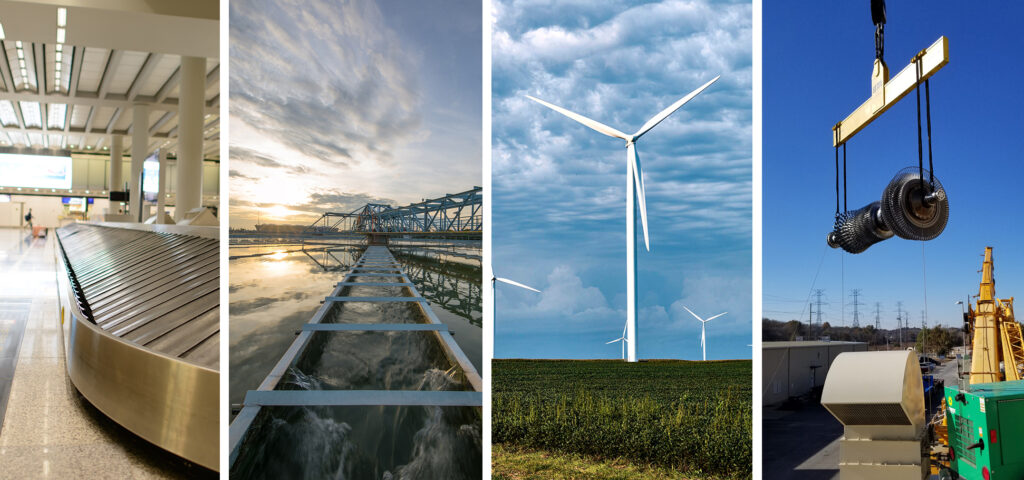
The SSMRC is part of a committee that is working to make sure union members – and particularly our millwrights – gain substantial job opportunities through programs that will funnel billions of dollars into infrastructure, technology, and clean-energy projects during the next decade.
Requirements and incentives in recent federal legislation including the Bipartisan Infrastructure Law, Chips and Science Act, and Inflation Reduction Act were designed to create good-paying jobs with benefits for workers without college degrees. Many projects these programs will fund will be built in rural areas and must use project-labor agreements, which require workers to be paid prevailing wages and benefits. Union contractors will have a strong advantage because of the labor standards built into the programs.
The UBC Southern District Infrastructure Committee is identifying funding pathways and awarded projects and educating state and local officials, facility owners, and our partnering contractors about opportunities. The committee also plans to serve as a watchdog, holding project owners accountable for meeting labor requirements attached to the funding they received.
More information about the laws funding this work follows.
Bipartisan Infrastructure Law
The Bipartisan Infrastructure Law is investing $73 billion in electric-grid and power-generation infrastructure, $55 billion in water and wastewater infrastructure, and $25 billion in airports over 10 years. These state fact sheets provide updates on projects, and you can see a map showing funded projects here.
Inflation Reduction Act
The Inflation Reduction Act, which will fund a range of clean-energy projects, is offering $270 billion in tax benefits to companies that ensure Davis-Bacon Act prevailing wages are paid to workers and that registered apprentices are utilized. The projects must take place at facilities that produce electricity from renewable resources including nuclear, hydropower, wind, biomass, geothermal, solar, landfill gas, and trash.
Chips and Science Act
Companies seeking funding through the CHIPS and Science Act, which is aimed at boosting American semiconductor research, development, and production, will be required to submit workforce development plans for workers who will build their facilities as well as operate them. Those plans must include strategies for meeting the Commerce and Labor Departments’ Good Jobs Principles, which ensure projects create high-quality jobs. Applicants also are strongly encouraged to use project-labor agreements. These guidelines give union contractors a strong advantage when bidding on work at facilities constructed with CHIPS funding.
